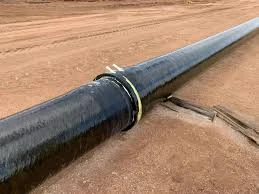
-
 Afrikaans
Afrikaans -
 Albanian
Albanian -
 Amharic
Amharic -
 Arabic
Arabic -
 Armenian
Armenian -
 Azerbaijani
Azerbaijani -
 Basque
Basque -
 Belarusian
Belarusian -
 Bengali
Bengali -
 Bosnian
Bosnian -
 Bulgarian
Bulgarian -
 Catalan
Catalan -
 Cebuano
Cebuano -
 China
China -
 China (Taiwan)
China (Taiwan) -
 Corsican
Corsican -
 Croatian
Croatian -
 Czech
Czech -
 Danish
Danish -
 Dutch
Dutch -
 English
English -
 Esperanto
Esperanto -
 Estonian
Estonian -
 Finnish
Finnish -
 French
French -
 Frisian
Frisian -
 Galician
Galician -
 Georgian
Georgian -
 German
German -
 Greek
Greek -
 Gujarati
Gujarati -
 Haitian Creole
Haitian Creole -
 hausa
hausa -
 hawaiian
hawaiian -
 Hebrew
Hebrew -
 Hindi
Hindi -
 Miao
Miao -
 Hungarian
Hungarian -
 Icelandic
Icelandic -
 igbo
igbo -
 Indonesian
Indonesian -
 irish
irish -
 Italian
Italian -
 Japanese
Japanese -
 Javanese
Javanese -
 Kannada
Kannada -
 kazakh
kazakh -
 Khmer
Khmer -
 Rwandese
Rwandese -
 Korean
Korean -
 Kurdish
Kurdish -
 Kyrgyz
Kyrgyz -
 Lao
Lao -
 Latin
Latin -
 Latvian
Latvian -
 Lithuanian
Lithuanian -
 Luxembourgish
Luxembourgish -
 Macedonian
Macedonian -
 Malgashi
Malgashi -
 Malay
Malay -
 Malayalam
Malayalam -
 Maltese
Maltese -
 Maori
Maori -
 Marathi
Marathi -
 Mongolian
Mongolian -
 Myanmar
Myanmar -
 Nepali
Nepali -
 Norwegian
Norwegian -
 Norwegian
Norwegian -
 Occitan
Occitan -
 Pashto
Pashto -
 Persian
Persian -
 Polish
Polish -
 Portuguese
Portuguese -
 Punjabi
Punjabi -
 Romanian
Romanian -
 Russian
Russian -
 Samoan
Samoan -
 Scottish Gaelic
Scottish Gaelic -
 Serbian
Serbian -
 Sesotho
Sesotho -
 Shona
Shona -
 Sindhi
Sindhi -
 Sinhala
Sinhala -
 Slovak
Slovak -
 Slovenian
Slovenian -
 Somali
Somali -
 Spanish
Spanish -
 Sundanese
Sundanese -
 Swahili
Swahili -
 Swedish
Swedish -
 Tagalog
Tagalog -
 Tajik
Tajik -
 Tamil
Tamil -
 Tatar
Tatar -
 Telugu
Telugu -
 Thai
Thai -
 Turkish
Turkish -
 Turkmen
Turkmen -
 Ukrainian
Ukrainian -
 Urdu
Urdu -
 Uighur
Uighur -
 Uzbek
Uzbek -
 Vietnamese
Vietnamese -
 Welsh
Welsh -
 Bantu
Bantu -
 Yiddish
Yiddish -
 Yoruba
Yoruba -
 Zulu
Zulu
Innovative Solutions in Molded Fiberglass for Diverse Applications and Industries
The Benefits and Applications of Molded Fiberglass
Molded fiberglass, often referred to as fiberglass-reinforced plastic (FRP), has emerged as a pivotal material in various industries due to its exceptional properties. This composite material is made from a polymer matrix reinforced with fiberglass, offering a unique combination of strength, durability, and versatility. The process of molding fiberglass typically involves combining glass fibers with a resin, which is then shaped to form solid, lightweight components.
One of the primary advantages of molded fiberglass is its remarkable strength-to-weight ratio. Unlike traditional materials such as metal or wood, fiberglass is significantly lighter, making it easier to transport and handle. This feature has made it a preferred choice in industries like automotive and aerospace, where reducing weight is crucial for improving fuel efficiency and performance.
Additionally, molded fiberglass is highly resistant to corrosion, chemicals, and UV radiation. These properties make it an ideal material for outdoor applications, such as enclosures, tanks, and piping systems. In the chemical industry, for instance, fiberglass tanks and containers are widely used to store corrosive substances because they do not degrade under harsh conditions.
Molded fiberglass also offers excellent thermal and electrical insulation properties, adding to its versatility. This type of fiberglass is commonly used in electrical applications, such as circuit boards and insulating components, where non-conductive materials are essential.
molded fiberglass

In construction, molded fiberglass finds applications in a variety of products, including roofing systems, wall panels, and recreational vehicles. Its durability and low maintenance requirements mean that structures made from molded fiberglass can last for decades with minimal upkeep.
The manufacturing process of molded fiberglass allows for intricate designs and customizable shapes, which can be tailored to meet specific industry needs. Advanced molding techniques, such as compression and injection molding, enable the production of complex components that would be challenging to achieve with traditional materials.
Sustainability has also become a growing concern in recent years, and molded fiberglass can be produced with environmentally friendly practices. Many manufacturers are exploring ways to recycle fiberglass and reduce waste, further enhancing the material’s appeal.
In conclusion, molded fiberglass represents a remarkable fusion of strength, durability, and design flexibility, making it an invaluable resource across various industries. As technology continues to evolve, the applications of molded fiberglass are likely to expand, paving the way for new innovations that harness its unique capabilities. The future looks bright for this versatile material, promising continued advancements and contributions to numerous fields.
Latest news
-
Exploring the Benefits of Top Hammer Drifter Rods for Enhanced Drilling PerformanceNewsJun.10,2025
-
High-Precision Fiberglass Winding Machine for GRP/FRP Pipe Production – Reliable & Efficient SolutionsNewsJun.10,2025
-
FRP Pipes & Fittings for Shipbuilding - Corrosion-Resistant & LightweightNewsJun.09,2025
-
Premium FRP Flooring Solutions Durable & Slip-ResistantNewsJun.09,2025
-
Premium Fiberglass Rectangular Tanks Durable & Lightweight SolutionNewsJun.09,2025
-
Tapered Drill String Design Guide Durable Performance & UsesNewsJun.09,2025









